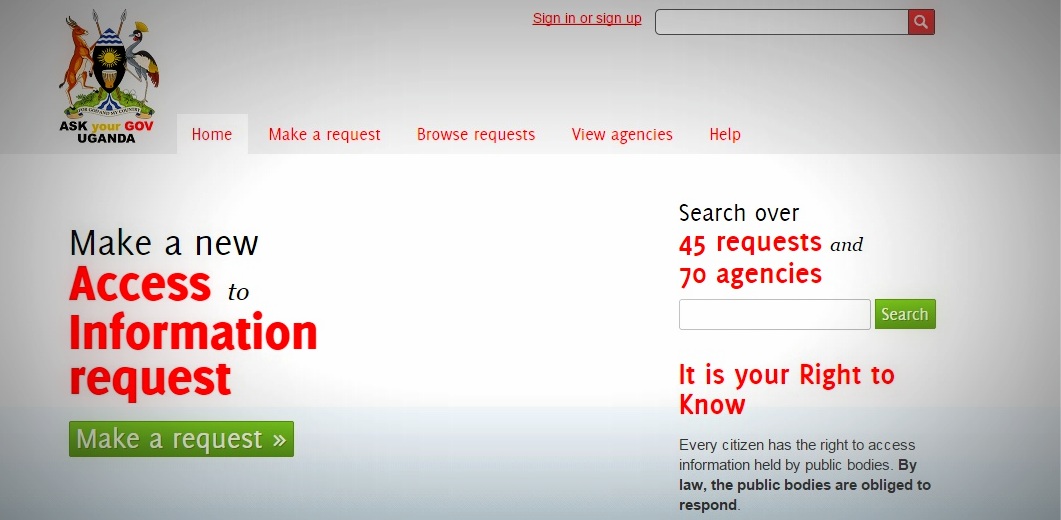By Esther Nakkazi |
On September 28, 2015, the International Right to Know Day was commemorated in Uganda at an event that also marked the 10th Anniversary of the enactment of the country’s Access to Information Act (ATIA).
During the celebrations held alongside the 2015 Forum on Internet Freedom in East Africa, stakeholders discussed experiences, lessons and challenges relating to ATIA, which was passed in 2005. The event also served as the launch of the 2015 report on the State of the Right to Information in Africa.
The celebrations were hosted by the Africa Freedom of Information Centre (AFIC) and the Collaboration on International ICT Policy for East and Southern Africa (CIPESA) together with the Ministry of Information and National Guidance (MING) in the- Office of the Prime Minister (OPM).
Uganda was the first country in East Africa to adopt an access to information law. It was followed by Rwanda in 2013, making the two land-locked nations the only ones among the five member states of the East African Community (EAC) with access to information laws.
Implementation of the ATIA in Uganda has been slow, partly because regulations to give effect to the law were passed in 2011, six years after the Act was enacted.
Proactive release of information remains low to-date, while the culture of secrecy and fear of reprisal remains prevalent. According to Gilbert Sendugwa, the Executive Director of AFIC, “many Ugandans still do not understand what it means to have the Access to Information Act”. Sendugwa added that building awareness and demand for information among citizens as well as creating responsiveness from public agencies, were required in order to improve implementation of the ATIA.
Silvia Birahwa from the Directorate of Information and National Guidance noted that as a result of the delay in passing ATIA’s regulations, there were different levels of compliance by government ministries, departments and agencies (MDAs). Some government officials were compliant while others made little or no responses to requests for information, she said.
Birahwa said Information officers of various MDAs reported a lack of capacity, including limited access to the internet and a lack of interest amongst staff, as barriers to the release of information. Accordingly, the government communication strategy is aimed to better equip Chief Information Officers within the MDAs to better respond to information requests and to aid the progress of the ATIA.
The Ministry of Lands, Housing and Urban Development (MLHUD) received an award for their consistent and prompt release of information using the Ask Your Government (www.askyourgov.ug) website. Dennis Obbo, the Principal Information Scientist at MLHUD, received the award on behalf of the ministry.
In order to encourage more citizens to exercise their right to information, in August last year, the OPM through the Ministry of Information and in partnership with AFIC and CIPESA launched www.askyourgov.ug to enable citizens to directly request public agencies information.

